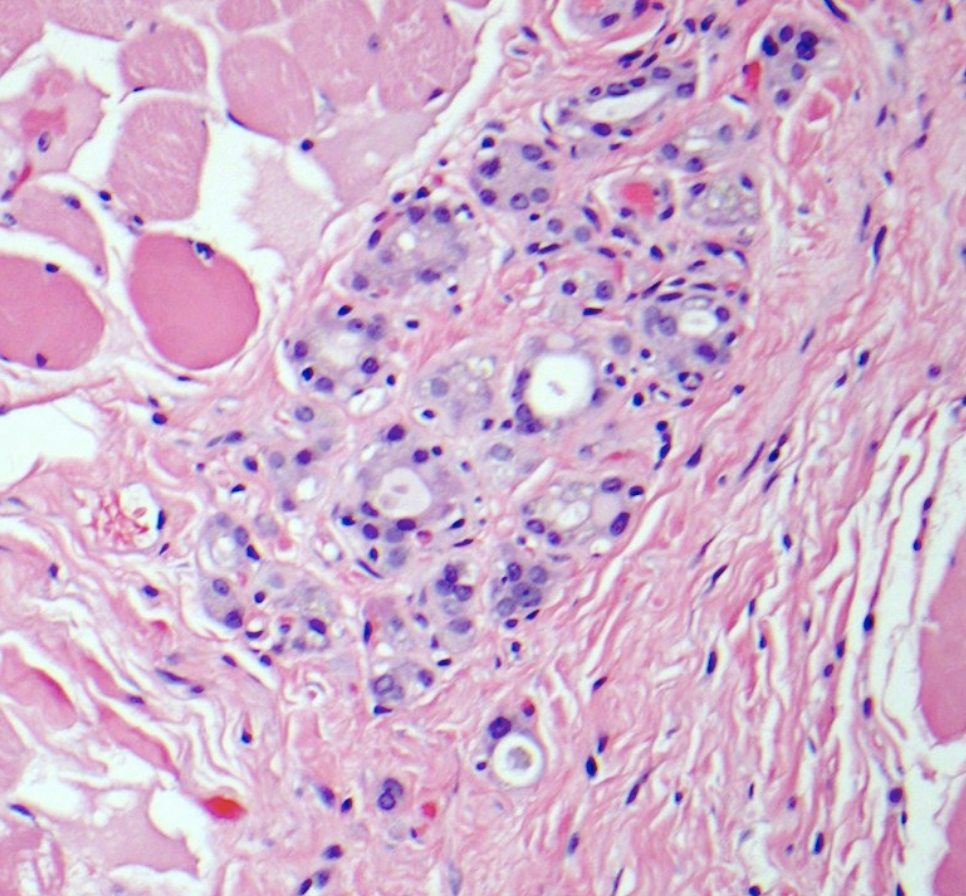
How we manage most cases
Diagnosing Benign Nodules
Usually this is diagnosed on the Ultrasound scan (+/- needle biopsy)

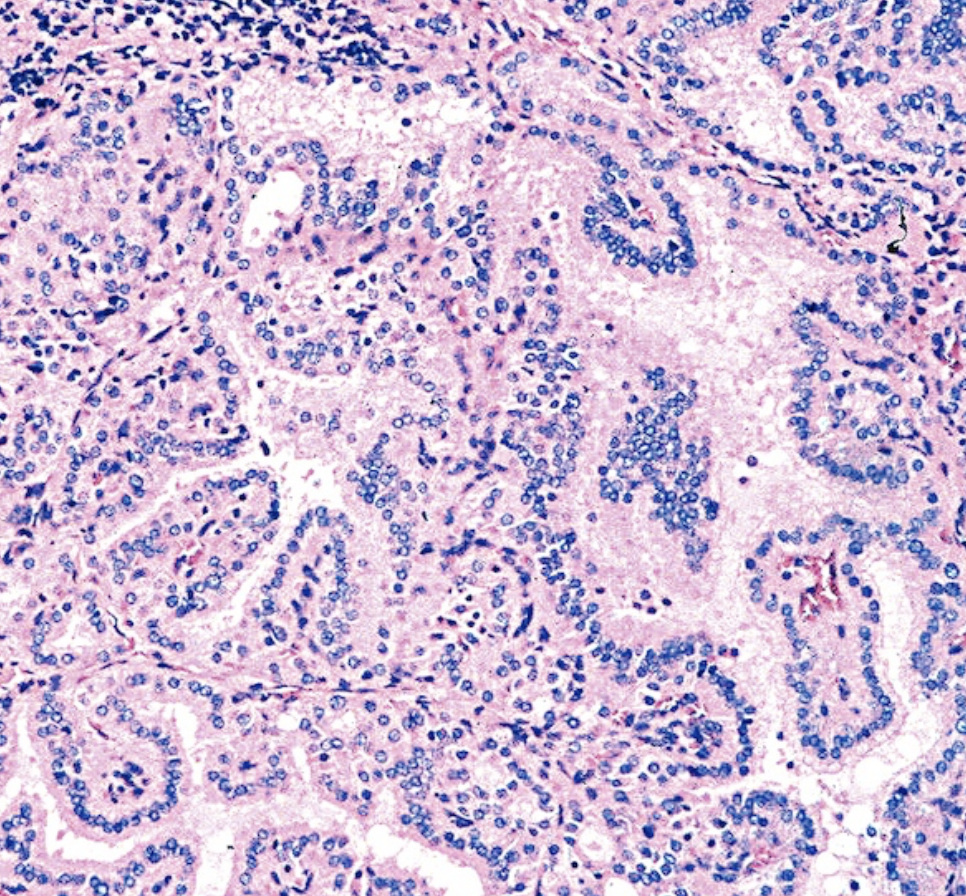
Inconclusive US scan having had a needle biopsy.
If at US the nodule is not definitely benign, the doctor doing it will take a small needle biopsy. If both come back as 'indeterminate' then we cannot say for sure if this is benign and the risk of it being a cancer is around 25%.
Once we have a diagnosis from this operation we can advise if any further treatment is needed such as removal of the rest of the thyroid.
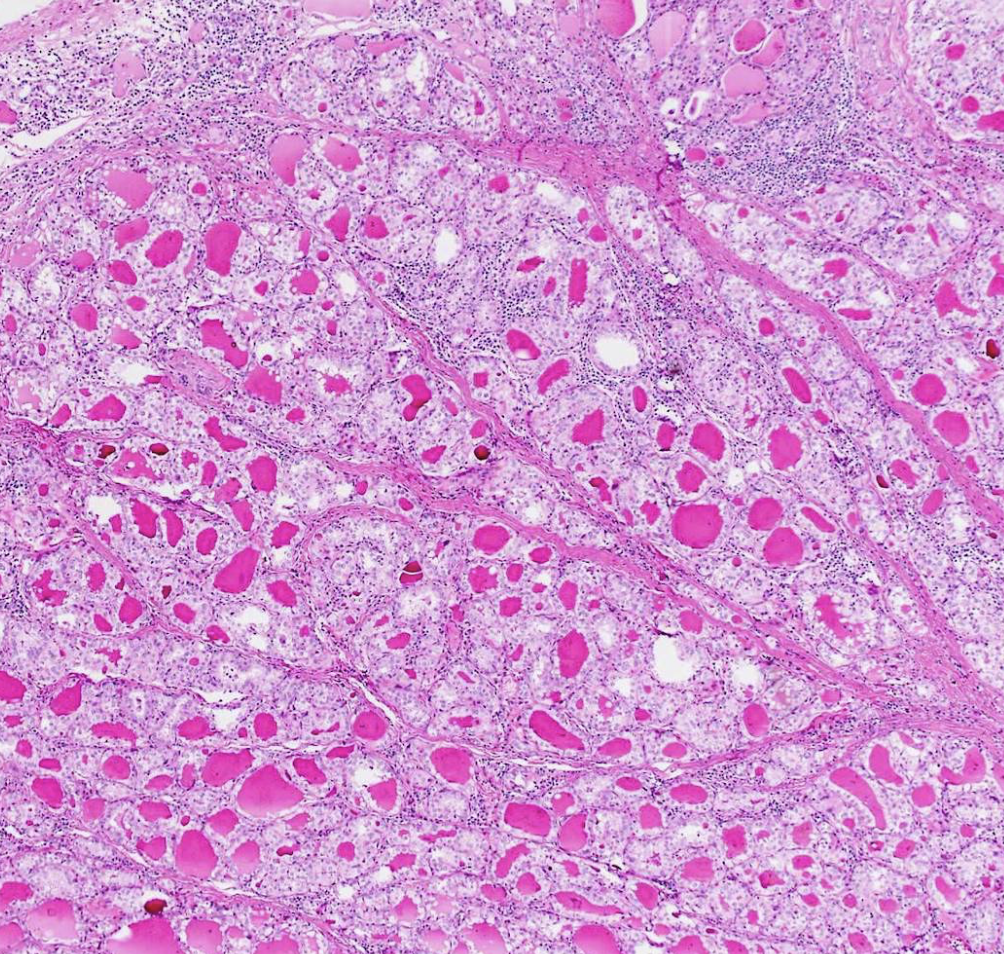
Thyroid cancer is diagnosed
Normally cancer is diagnosed after a diagnostic thyroid lobectomy. But if we know for sure beforehand that it is a cancer, we can do a total thyroidectomy at the initial operation.
See below for strategies on how to treat thyroid cancers.
Managing Thyroid Cancer
There are 4 main types of Thyroid cancer. 2 are very rare and 2 are what we see >95% of the time. We call these well-differentiated thyroid cancers and they have an excellent outcome with the right surgery. I would expect >90% of these people to have a normal life expectancy without recurrent disease after good initial care and follow up.
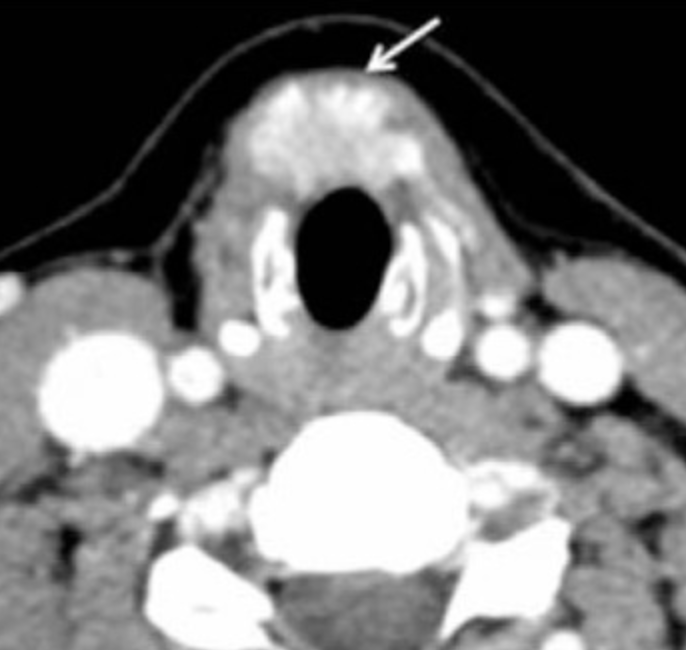
Step 1: Making a diagnosis
This is done following the steps outlined above. Often an operation (thyroid lobectomy) has been needed to make a definite diagnosis. Once made we can move to Step 2.
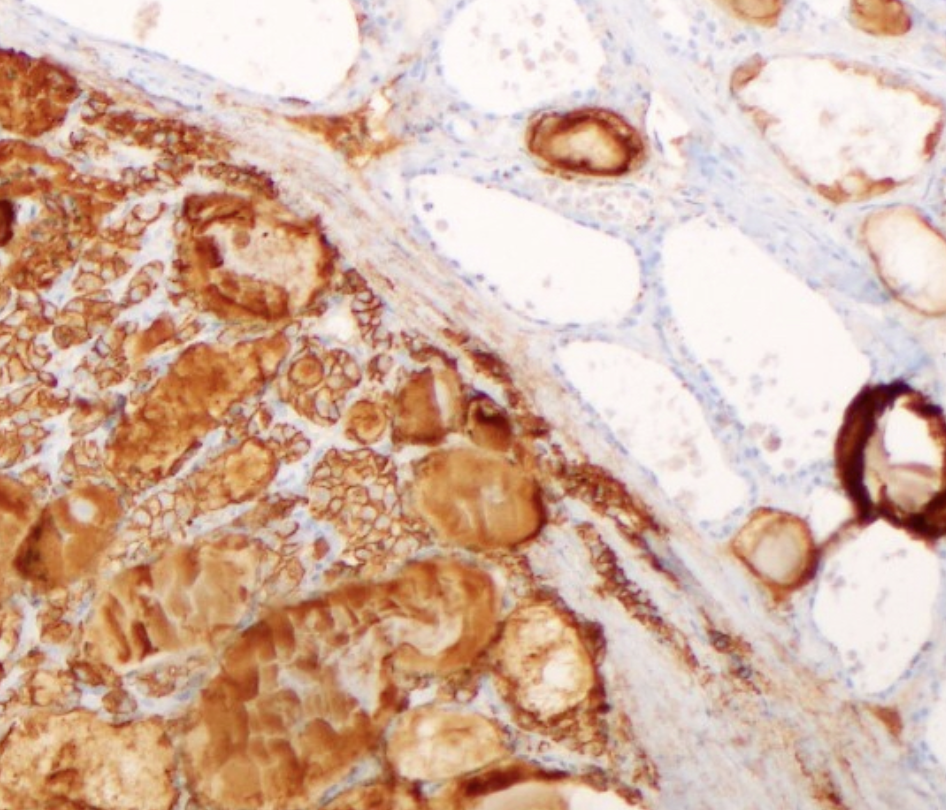
Step 2: Multi-disciplinary discussion
This is a meeting of specialists from Surgery, Imaging, Pathology and Cancer Care. Once the diagnosis is made we can discuss specific features of your case and make a team recommendation on further care.
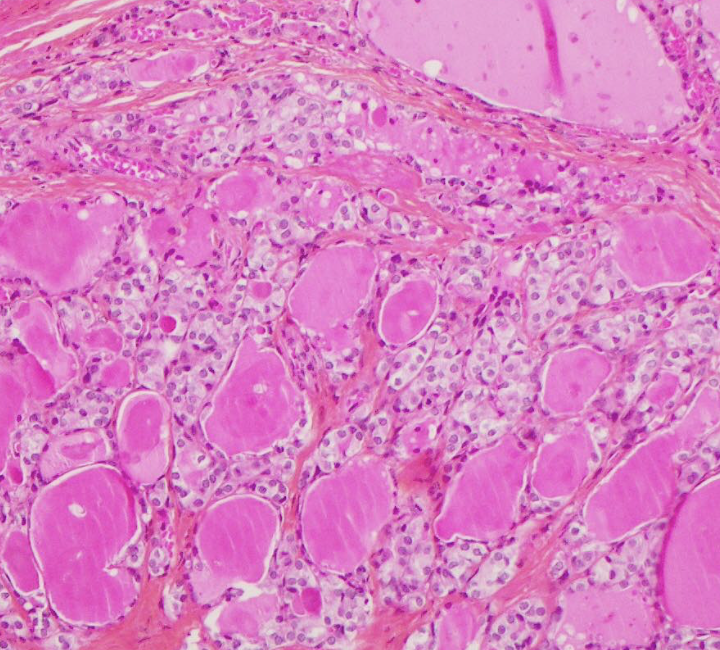
Step 3: Further care
We don't always recommend any further care as the Prognosis is so good in so many. But when further care is needed, it is usually an operation to remove the rest of the thyroid gland. This is sometimes followed by radioactive iodine as a one off tablet and thyroid hormone replacement that suppresses any signalling to reactivate any scattered thyroid cells.
Very occasionally, further surgery to remove lymph node spread is needed either at the outset or after follow up.
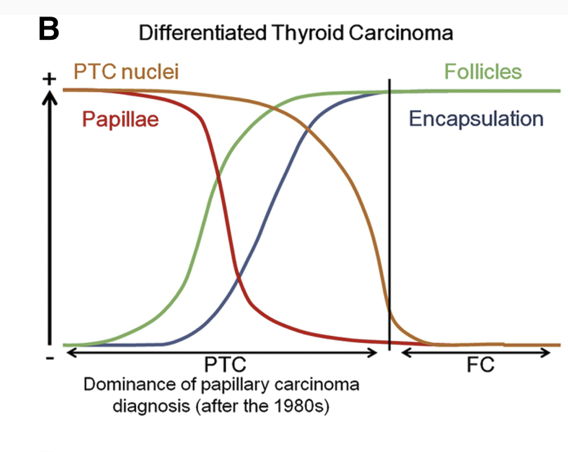
Step 4: Surveillance
This is ongoing surveillance by the Cancer Care team who can advise on and administer any other treatment such as radioactive iodine, monitor that you get adequate thyroid hormone replacement and measure blood markers for signs of recurrence. This can go on for 5-10 years.
